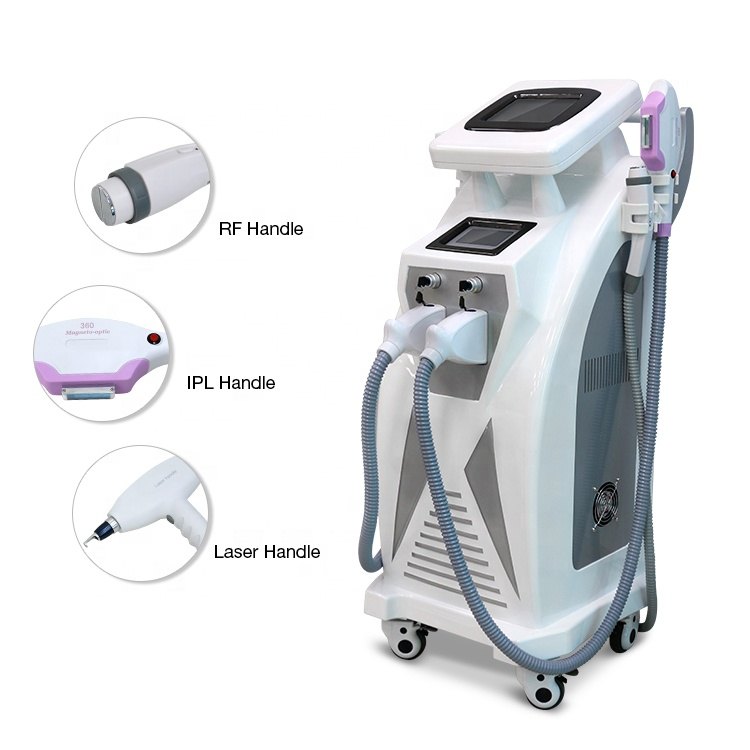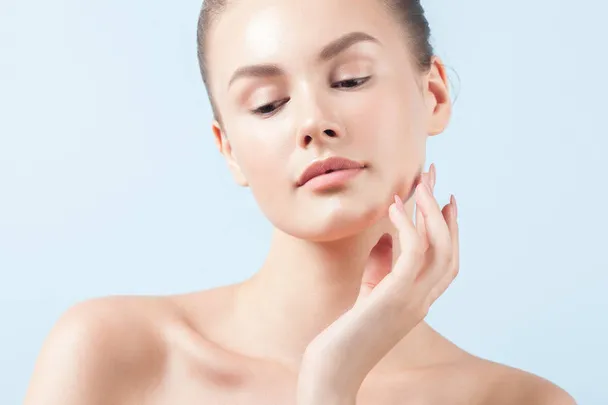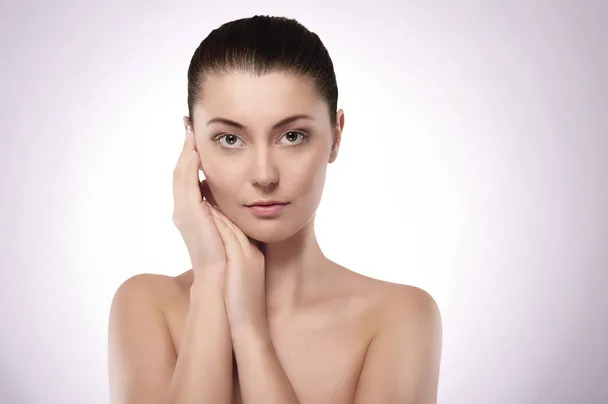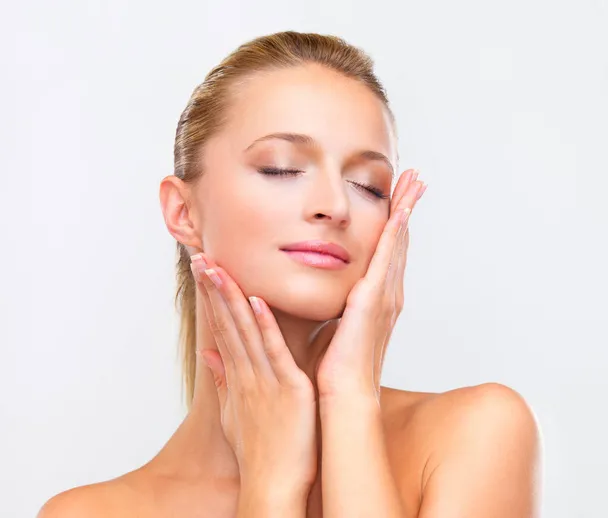The Healing Power of Honey: Can it Truly Help Fade Face Acne Scars?
Acne scars, the lasting reminders of past breakouts, can be a source of frustration and self-consciousness for many individuals. In the quest for smoother, clearer skin, numerous remedies and treatments have been explored, with honey emerging as a popular natural option. But can honey truly help fade face acne scars? Let’s delve into the scientific evidence and explore the potential benefits of this sweet substance.
Understanding Acne Scars:
Acne scars are enduring reminders of past breakouts, etched into the skin as a result of the body’s intricate healing processes following inflammatory acne lesions. These scars originate from the body’s attempt to repair tissue damage caused by the inflammation and trauma associated with acne. The development of acne scars is influenced by a multitude of factors, including skin type, the severity of acne, and individual healing responses.
One common type of acne scar is the atrophic scar, characterized by depressions or indentations in the skin’s surface. Atrophic scars typically form when there is a loss of tissue during the healing process, resulting in a sunken appearance. These scars may take the form of icepick scars, which are narrow and deep, boxcar scars, which have sharp edges and resemble the indentation left by a chickenpox scar, or rolling scars, which have gently sloping edges and give the skin a wave-like appearance. Atrophic scars often occur in individuals with a predisposition to delayed wound healing or those who experienced severe inflammatory acne.
Conversely, hypertrophic scars represent an overgrowth of scar tissue, resulting in raised or thickened areas on the skin’s surface. These scars develop when there is an excess of collagen produced during the healing process, leading to the formation of raised bumps or ridges. Hypertrophic scars are more common in individuals with a genetic predisposition to keloid scarring or those with a history of severe acne lesions. Unlike atrophic scars, which are characterized by depressions, hypertrophic scars protrude above the surrounding skin level and may be red, pink, or flesh-toned in color.
The appearance and severity of acne scars can vary significantly from person to person, depending on individual factors such as skin type, ethnicity, and hormonal influences. Additionally, the depth and extent of tissue damage caused by acne lesions play a critical role in determining the type and severity of scarring. While some individuals may experience minimal scarring that gradually fades over time, others may develop extensive and persistent scars that significantly impact their self-esteem and quality of life.
Understanding the diverse manifestations of acne scars, including atrophic and hypertrophic scars, is essential for developing targeted treatment approaches and managing expectations for scar improvement. While various treatment modalities, including topical therapies, laser treatments, and surgical procedures, are available for acne scar management, the efficacy of these interventions may vary depending on the type and severity of scars. By recognizing the complex nature of acne scars and tailoring treatment strategies accordingly, healthcare providers can help individuals achieve smoother, more radiant skin and restore confidence in those affected by acne scarring.
The Therapeutic Properties of Honey:
Honey, hailed for its extensive array of health benefits, has enjoyed a long-standing reputation in both traditional medicine and skincare practices. This natural elixir, crafted by bees from the nectar of flowers, has been treasured for its multifaceted therapeutic properties throughout history. Abundant in antioxidants, antibacterial compounds, and humectant qualities, honey emerges as a compelling contender for scar treatment, offering a holistic approach to skin rejuvenation and repair.
Antioxidants are among honey’s most remarkable assets, serving as formidable defenders against oxidative stress and environmental aggressors. Laden with flavonoids, phenolic acids, and enzymes, honey acts as a potent shield against free radicals, safeguarding the skin from premature aging and oxidative damage. By neutralizing harmful molecules and fortifying the skin’s natural defenses, honey helps preserve its youthful radiance and resilience.
Moreover, honey’s antibacterial prowess lends it a pivotal role in scar treatment and wound healing. Varieties like Manuka honey, renowned for their elevated levels of methylglyoxal and hydrogen peroxide, exhibit potent antimicrobial properties. These antibacterial compounds inhibit the growth of harmful pathogens, including the acne-causing Propionibacterium acnes, thereby reducing the risk of infection and fostering optimal conditions for skin repair.
In addition to its antioxidant and antibacterial attributes, honey’s humectant properties make it an invaluable ally in maintaining skin hydration and moisture balance. As a natural humectant, honey draws moisture from the environment and locks it into the skin, ensuring lasting hydration and suppleness. This moisture-retaining capacity not only softens and smoothes the skin but also bolsters its protective barrier, shielding it from external stressors and promoting overall skin health.
Furthermore, honey’s anti-inflammatory capabilities play a pivotal role in soothing and calming irritated or inflamed skin, a common concern in scar management. By reducing inflammation and redness, honey alleviates discomfort and accelerates the healing process, facilitating the resolution of acne lesions and minimizing the risk of scarring. This anti-inflammatory action extends beyond scar treatment, offering relief for various inflammatory skin conditions, including eczema and psoriasis.
With its collagen-stimulating effects, honey contributes to skin rejuvenation and scar repair by promoting collagen synthesis. Enriched with enzymes that stimulate collagen production, honey enhances skin elasticity, firmness, and resilience. This collagen-boosting action helps improve the appearance of scars and fine lines, resulting in smoother, more youthful-looking skin.
In conclusion, honey’s rich composition of antioxidants, antibacterial compounds, and humectant properties underscores its potential as a versatile and effective treatment for scars. Whether used topically as a mask, spot treatment, or ingredient in skincare formulations, honey offers a natural and holistic approach to scar management, addressing multiple aspects of skin health and rejuvenation. With its time-honored legacy and scientifically validated benefits, honey continues to captivate skincare enthusiasts worldwide as a cherished ally in the pursuit of radiant, healthy skin.
Antibacterial and Anti-inflammatory Effects:
Honey stands out for its remarkable antibacterial and anti-inflammatory characteristics, making it a standout contender in scar treatment and skincare. Notably, certain varieties like Manuka honey sourced from New Zealand have garnered attention for their potent antibacterial activity, particularly against Propionibacterium acnes, the bacteria implicated in acne formation. Through its ability to inhibit bacterial colonization and proliferation, honey aids in curbing the development of new acne lesions, thereby mitigating the likelihood of subsequent scarring.
Additionally, honey’s anti-inflammatory properties play a pivotal role in alleviating skin inflammation and redness, key factors in the pathogenesis of acne and scar formation. By mitigating the inflammatory response triggered by acne lesions, honey contributes to the resolution of existing blemishes while preventing the formation of new ones. This dual action—combating bacteria and inflammation—underscores honey’s multifaceted approach to acne management and scar prevention.
Scientific studies have provided compelling evidence supporting honey’s efficacy in combating bacterial infections and reducing inflammation in various dermatological conditions. These findings highlight honey’s potential as a natural and effective remedy for acne scars, offering a gentle yet potent solution for promoting clearer, healthier skin. As such, incorporating honey into skincare routines may prove beneficial for individuals seeking to address acne-related concerns and minimize the long-term impact of scarring on skin appearance and texture.
Wound Healing and Tissue Regeneration:
Honey’s reputation for promoting wound healing and tissue regeneration spans centuries, rooted in its remarkable ability to nurture skin repair processes. Serving as a natural wound dressing, honey forms a protective barrier over wounds, shielding them from external contaminants while creating an optimal environment for healing. Its ability to maintain a moist wound environment accelerates the regeneration of damaged tissues, facilitating faster wound closure and reducing the risk of infection.
Moreover, honey’s enzymatic composition contributes to its wound-healing properties by stimulating the production of vital proteins such as collagen and elastin. Collagen, the primary structural protein in the skin, provides tensile strength and support, while elastin confers elasticity and resilience. By enhancing collagen and elastin synthesis, honey promotes tissue remodeling and regeneration, leading to improved skin texture and appearance.
Scientific studies have corroborated honey’s efficacy in wound healing, demonstrating its ability to accelerate healing rates, reduce inflammation, and minimize scar formation. These findings underscore honey’s potential as a natural and effective treatment for acne scars, offering a gentle yet powerful solution for achieving smoother, more resilient skin.
In conclusion, honey’s ability to promote wound healing and tissue regeneration stems from its capacity to create a protective barrier, maintain a moist wound environment, and stimulate collagen and elastin production. By harnessing these properties, honey not only accelerates the healing of wounds but also improves the appearance of acne scars, fostering smoother, more radiant skin. Incorporating honey into skincare routines may thus offer a holistic approach to scar management, enabling individuals to achieve clearer, healthier skin with the aid of this natural wonder.
Antioxidant Activity:
Honey’s antioxidant activity represents a cornerstone of its therapeutic potential in skincare, offering a natural defense against oxidative stress and its detrimental effects on skin health. Laden with a diverse array of antioxidant compounds such as flavonoids and phenolic acids, honey serves as a formidable shield against free radicals, the unstable molecules implicated in cellular damage and premature aging.
Free radicals, generated as byproducts of metabolic processes or induced by external factors like UV radiation and pollution, wreak havoc on skin cells, contributing to DNA damage, collagen degradation, and lipid peroxidation. In the context of acne scars, oxidative stress exacerbates inflammation and impairs the skin’s ability to repair and regenerate, prolonging the healing process and intensifying scar visibility.
Honey’s antioxidant arsenal comes to the rescue by intercepting free radicals and neutralizing their harmful effects. Flavonoids, potent antioxidants found in honey, scavenge free radicals, while phenolic acids bolster the skin’s defenses against oxidative stress. By counteracting the oxidative damage inflicted by free radicals, honey helps mitigate inflammation, promote tissue repair, and enhance the overall health and resilience of the skin.
Scientific research has substantiated honey’s antioxidant properties, highlighting its ability to reduce oxidative stress, protect against UV-induced damage, and improve skin barrier function. These findings underscore honey’s potential as a natural and effective adjunct in scar management, offering a gentle yet potent solution for addressing oxidative damage and promoting scar healing.
In summary, honey’s antioxidant activity represents a key mechanism through which it supports skin health and facilitates scar healing. By neutralizing free radicals and reducing oxidative stress, honey helps fortify the skin’s defenses, enhance tissue repair processes, and minimize the long-term impact of acne scars. Incorporating honey into skincare routines may thus offer a proactive approach to scar management, empowering individuals to achieve clearer, healthier skin and restore confidence in their complexion.
Clinical Evidence and Studies:
Despite the longstanding praise of honey in scar treatment, scientific validation of its efficacy remains relatively limited. While anecdotal accounts and traditional knowledge abound, concrete evidence from rigorous clinical studies is sparse. Nonetheless, a handful of small-scale trials and research endeavors have ventured into exploring the potential benefits of honey-based products in wound healing and scar management, yielding promising albeit preliminary results.
Several studies have examined the use of honey in promoting wound healing, particularly in the context of acute and chronic wounds. These investigations have highlighted honey’s ability to accelerate wound closure, reduce inflammation, and minimize bacterial colonization, thereby facilitating the healing process. While the findings are encouraging, the extrapolation of these results to scar management, particularly in the context of acne scars, necessitates further investigation.
In the realm of scar treatment, limited research has explored the efficacy of honey-based formulations in mitigating scar formation and improving scar appearance. Some studies have reported favorable outcomes, including reduced scar size, improved texture, and enhanced skin elasticity, following the application of honey-based dressings or topical treatments. However, the sample sizes and methodologies of these studies vary, and larger-scale trials are warranted to validate these findings and establish honey’s role in acne scar treatment conclusively.
Moreover, while honey’s mechanisms of action in wound healing and scar management have been partially elucidated, further research is needed to unravel the intricacies of its therapeutic effects at the molecular level. Investigating the specific bioactive compounds present in honey, their interactions with skin cells, and their influence on key signaling pathways involved in scar formation could shed light on honey’s potential as a scar treatment agent.
Additionally, optimizing the formulation and delivery of honey-based products for acne scar treatment represents an area ripe for exploration. Tailoring honey formulations to maximize bioavailability, stability, and skin penetration could enhance their efficacy and ensure consistent therapeutic outcomes.
Incorporating Honey into Skincare Routine:
Incorporating honey into one’s skincare routine offers a simple yet effective approach for individuals seeking to harness its potential benefits for acne scars. Whether using raw, organic honey or honey-based skincare products, there are various ways to integrate this natural remedy into daily skincare rituals.
Topical Application of Raw Honey:
Raw, organic honey can be applied directly to clean, dry skin as a mask or spot treatment. To use honey as a mask, spread a thin layer of honey over the face, focusing on areas affected by acne scars. Leave the honey on for 15-20 minutes, allowing its therapeutic properties to penetrate the skin, before rinsing it off with lukewarm water. For spot treatment, apply a small amount of honey directly onto individual acne scars and leave it on overnight for maximum efficacy.
- Honey-Based Skincare Products:
Alternatively, individuals can opt for honey-based skincare products specifically formulated for scar treatment. Honey-based masks, serums, and creams offer convenient options for targeted scar treatment, providing a concentrated dose of honey’s therapeutic ingredients along with complementary skincare ingredients. When selecting honey-based products, it’s essential to choose formulations that are free from artificial additives and preservatives, opting for natural and organic options whenever possible.
- DIY Honey Skincare Recipes:
For those inclined toward DIY skincare, creating homemade honey-based treatments allows for customization and control over ingredients. Simple DIY recipes, such as honey masks or honey-infused serums, can be easily concocted using raw honey and other skin-nourishing ingredients like yogurt, oatmeal, or aloe vera. Experimenting with different combinations and formulations enables individuals to tailor their skincare routine to their specific skin concerns and preferences. - Consistency and Patience:
Regardless of the method chosen, consistency is key when incorporating honey into a skincare routine. Regular application of honey-based treatments, whether daily or a few times a week, allows for the cumulative benefits to take effect over time. It’s important to be patient and persistent, as improvements in acne scars may take several weeks or months to become noticeable. Additionally, practicing good skincare habits, such as cleansing, moisturizing, and protecting the skin from sun damage, complements the use of honey-based treatments and contributes to overall skin health.
Conclusion:
In conclusion, honey possesses several therapeutic properties that may benefit individuals seeking to fade face acne scars naturally. Its antibacterial, anti-inflammatory, wound-healing, and antioxidant effects make it a promising adjunctive treatment in scar management. While scientific evidence supporting its efficacy is still evolving, the anecdotal and historical use of honey in skincare underscores its potential as a gentle and effective remedy for acne scars. As with any skincare ingredient or treatment, it’s essential to patch-test honey products and consult with a dermatologist for personalized recommendations based on individual skin concerns and needs. With consistent use and patience, honey may indeed play a valuable role in achieving smoother, clearer skin and restoring confidence in those affected by acne scars.










